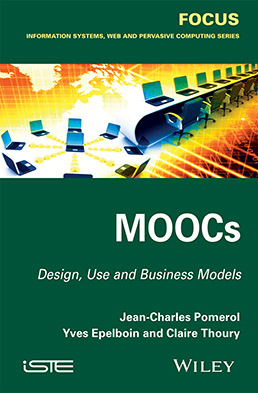
MOOCs (Massive Online Open Courses) are shaking up the traditional forms of primary and continuing education and training. These new distance teaching tools which take advantage of the Web and social network revolution are making us think again about how we teach and learn.
However, for all that, do they constitute a threat to universities and schools, or are they just a new tool to change the traditional classroom?
This book brings together answers to the questions most often posed:
• Is the MOOC really new or is it just a modern form of distance education?
• What is a MOOC, how does it differ from the traditional form of teaching?
• Who can or should be educated with a MOOC and with what objectives?
• How can a MOOC be created?
• What are the available platforms to develop this type of tool?
• What is the value of a diploma obtained using this type of online education or training?
• Will MOOCs revolutionize education or are they just an evolution of teaching?
• Do they mean the end of universities or are they only an amazing tool for life-long training?
• Is there a business model for developing MOOCs?
1. What is a MOOC?
2. How to Construct a MOOC.
3. A MOOC for Whom and for What Purposes?
4. Financing and Development of MOOCs.
5. MOOCs and Higher Education.
6. Conclusions: What Does the Future Hold for MOOCs?
Jean-Charles Pomerol is Emeritus Professor at Pierre and Marie Curie University in Paris, France and previously President of the Université Numérique des Sciences de la Santé et du Sport (UNF3S), a French-language digital university covering the fields of medicine, pharmacology, dentistry and sports science.
Yves Epelboin is Emeritus Professor at Pierre and Marie Curie University in Paris, France. He was previously head of Digital Teaching and Learning at UPMC.
Claire Thoury is a PhD student in sociology.